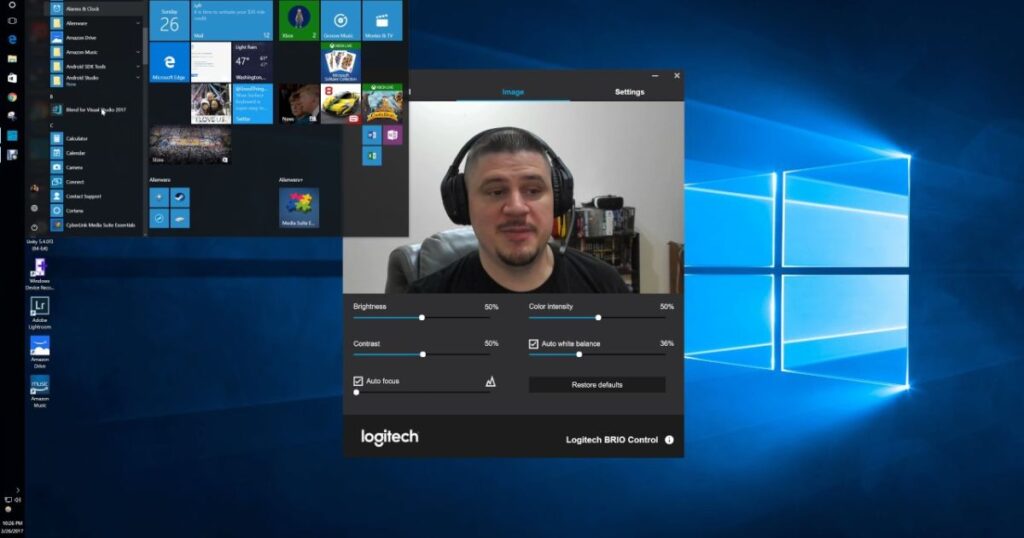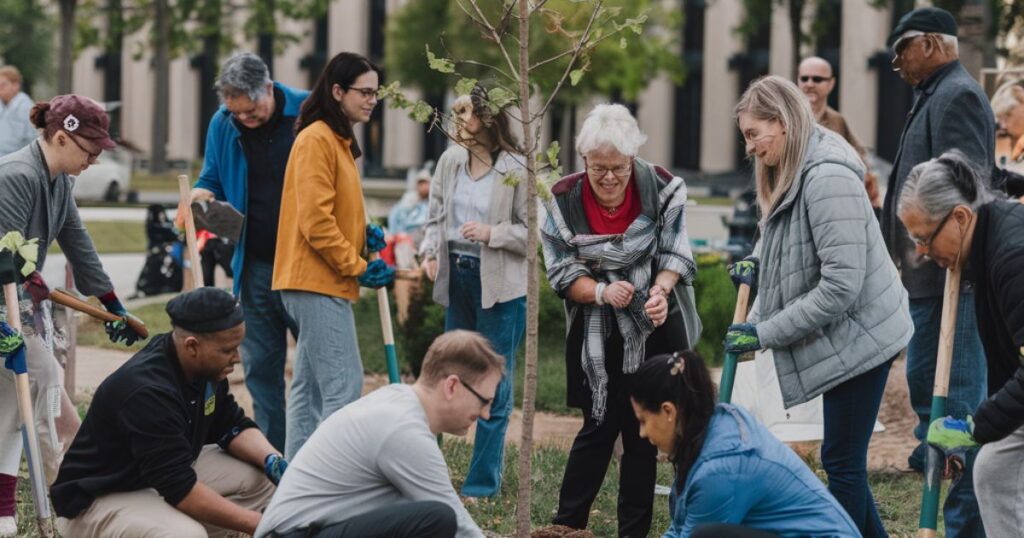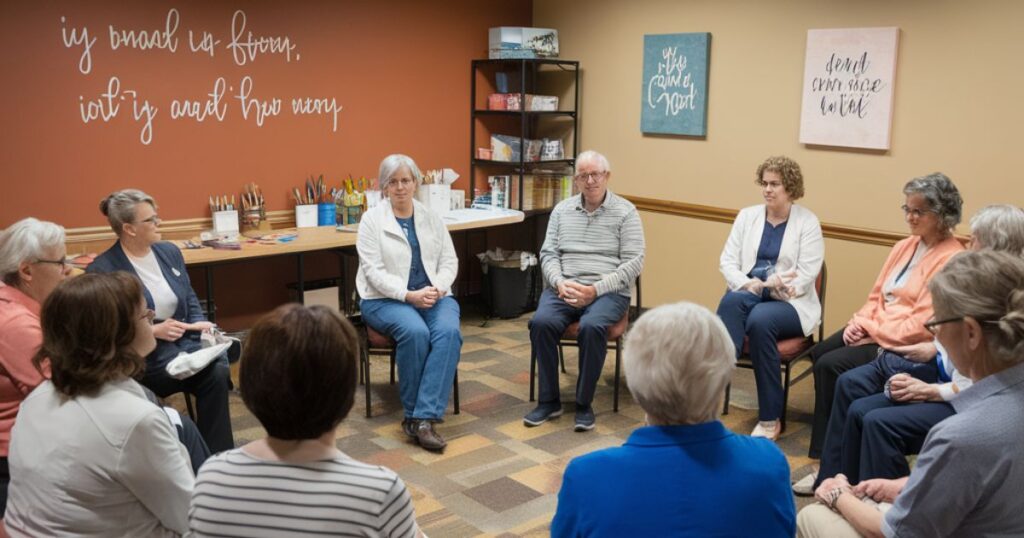It’s easy to forget to thank the people who make our lives better every day. Whether it’s a friend, family member, or coworker, their kindness and support deserve recognition.
In this article, you’ll find over 60 ways to say, “thank you for all you do.” From thoughtful messages to simple notes, these ideas will help you show your appreciation and make others feel valued.
Personal Relationships
- “Thank you for being my rock, always supporting me through life’s ups and downs. Your love and care mean everything.”
- “I’m grateful for your daily kindness and thoughtful gestures. They make every day brighter and bring joy to my life.”
- “Your constant love and patience never go unnoticed. Thank you for being there, always making me feel safe and valued.”
- “Thanks for sharing every moment, big and small, with me. Your presence is a gift I deeply appreciate every day.”
- “Your support lifts me up when I need it most. Thank you for being a steady source of love and encouragement.”
- “I’m lucky to have you by my side. Thank you for bringing happiness, laughter, and warmth into our relationship.”
- “Your understanding heart and listening ear mean so much to me. Thank you for all the ways you show you care.”
- “Thanks for believing in me, even when I doubt myself. Your encouragement gives me strength and confidence in everything I do.”
- “Every moment with you is special. I’m grateful for your kindness, humor, and love, making life richer and more beautiful.”
- “Thank you for accepting me as I am. Your support and love make me feel valued, appreciated, and truly understood.”
Professional Settings

- Your dedication to your work inspires everyone around you. Thank you for always going the extra mile for our team.
- I appreciate your positive attitude. It creates a friendly environment where we can all thrive and do our best work.
- Thank you for your valuable insights during meetings. Your input helps us make informed decisions and move projects forward effectively.
- Your attention to detail ensures that our work is always high-quality. Thank you for your thoroughness and commitment to excellence.
- I admire your ability to motivate others. Your encouragement makes a significant difference in our team’s morale and productivity.
- Thank you for being a reliable team player. Your support helps us all feel confident and capable in our roles.
- Your innovative ideas push us to think outside the box. Thank you for your creativity and willingness to share your thoughts.
- I appreciate your mentorship. Your guidance has helped me grow professionally and personally in ways I never expected.
- Thank you for your consistent hard work. Your efforts do not go unnoticed and significantly contribute to our team’s success.
- Your leadership sets a wonderful example for us all. Thank you for showing us how to lead with integrity and compassion.
- I value your willingness to collaborate. Working together enhances our projects and fosters a spirit of teamwork within our organization.
- Thank you for handling challenges with grace. Your calm demeanor helps us navigate tough situations and find solutions together.
- Your ability to listen and provide feedback is invaluable. Thank you for creating an open and supportive atmosphere for discussion.
- I appreciate your flexibility in adapting to changes. Your positive response to challenges keeps our projects on track and moving forward.
- Thank you for celebrating our achievements, big or small. Your recognition motivates us to continue striving for excellence.
- Your ability to prioritize tasks is impressive. Thank you for keeping us organized and focused on what truly matters.
- I admire your commitment to professional development. Thank you for encouraging us to pursue new skills and growth opportunities.
- Thank you for your transparency in communication. It builds trust among our team and helps us stay aligned on goals.
- Your problem solving skills are remarkable. Thank you for finding effective solutions and keeping our projects moving forward smoothly.
- I appreciate your willingness to share knowledge. Your expertise enriches our team’s capabilities and enhances our overall performance.
Friendships

- Friendships bring joy and laughter to our lives. They create lasting memories and shared experiences that we cherish forever.
- A true friend listens without judgment and offers support during tough times. They make life’s challenges easier to bear.
- Friends celebrate our successes, no matter how small. Their encouragement boosts our confidence and motivates us to achieve even more.
- Good friends are honest and provide constructive feedback. They help us grow by pointing out our strengths and weaknesses.
- Friendship is about being there for each other, through thick and thin. It’s a bond that withstands the test of time.
- Friends can brighten our day with just a simple text or call. Their presence reminds us we are never alone.
- Friendships require effort and communication. Regular check-ins strengthen our connections and help maintain the bond over time.
- Sharing experiences, like traveling together or enjoying hobbies, creates a deeper understanding and appreciation for one another.
- Laughter is a vital part of friendships. Sharing funny moments and inside jokes brings us closer and makes life enjoyable.
- Friends help us navigate through life’s ups and downs. They provide a sense of security and belonging that we crave.
- Celebrating each other’s birthdays and milestones is a beautiful way to show we care. It makes each friend feel special.
- Friends inspire us to be our best selves. Their positive energy encourages us to pursue our dreams and passions.
- Through shared challenges, friendships grow stronger. Supporting each other during difficult times fosters trust and deepens the bond.
- Friends accept us for who we are, flaws and all. This unconditional love creates a safe space to be ourselves.
- Friendships add color and meaning to our lives. They remind us of the importance of connection, support, and love.
Community and Volunteer Work

- Community and volunteer work create a sense of belonging. Helping others fosters connections and strengthens relationships among neighbors and friends.
- Volunteering allows individuals to share their skills and talents. Whether teaching, gardening, or organizing events, everyone can contribute meaningfully.
- Participating in community service builds compassion and empathy. Understanding the needs of others helps cultivate a supportive and caring environment.
- Volunteer work can boost your mental health. Helping others often brings joy and fulfillment, reducing stress and improving overall well-being.
- Community initiatives provide opportunities for personal growth. Engaging with diverse groups can expand your perspectives and enhance your understanding of the world.
- Working together fosters teamwork and collaboration. Volunteers learn to communicate effectively and solve problems, building essential skills for their personal and professional lives.
- Volunteering can create lasting friendships. Sharing experiences with like minded individuals helps form connections that extend beyond the service project.
- Community service encourages civic engagement. Volunteering empowers individuals to take an active role in shaping their neighborhoods and advocating for change.
- Many organizations rely on volunteers to thrive. Your support helps sustain important programs that benefit the entire community.
- Volunteering provides a sense of purpose. Contributing to meaningful causes can give life greater significance and motivate you to keep helping.
- Community and volunteer work often involve cultural exchange. Collaborating with others from different backgrounds can enrich your understanding and appreciation of diversity.
- Engaging in volunteer work can improve your resume. Employers value candidates who demonstrate commitment, teamwork, and a willingness to help others.
- Community initiatives often lead to positive change. Volunteers can create lasting impacts by addressing social issues and improving the lives of many.
- Giving back helps develop a sense of gratitude. Acknowledging the efforts of others encourages appreciation for the blessings in your life.
- Overall, community and volunteer work are vital for a healthy society. By working together, we can build stronger, more connected communities.
Read Also: 60+ Thank You Messages For Birthday Wishes
Caregivers and Support Systems

- Caregivers play a vital role in our lives, providing love and support during challenging times. Their efforts are invaluable.
- Every act of kindness from caregivers helps ease burdens and brings comfort to those in need. They truly make a difference.
- A caregiver’s patience and understanding can transform difficult moments into opportunities for growth and healing. Their compassion shines brightly.
- Supporting caregivers is essential because they often prioritize others’ needs over their own. Recognizing their efforts is important for everyone.
- Simple gestures, like a warm meal or a thoughtful note, can show caregivers how much they are appreciated and valued.
- Caregivers often face emotional challenges, so offering a listening ear or words of encouragement can significantly lift their spirits.
- Celebrating the contributions of caregivers fosters a sense of community and belonging, reminding them they are not alone in their journey.
- Encouraging self care practices among caregivers helps them recharge and maintain their well-being. They need to take care of themselves too.
- Building a support system for caregivers, including friends and family, can provide essential emotional and practical assistance when needed most.
- Recognizing the dedication of caregivers through community events or appreciation days can boost their morale and strengthen their sense of purpose.
- Caregivers often develop strong bonds with those they support, creating lasting relationships that enrich both their lives and the lives of others.
- Sharing stories about the impact of caregivers can inspire others to step up and offer support, creating a culture of gratitude.
- Involving caregivers in decision-making empowers them and validates their important role. Their insights can lead to better care outcomes.
- Regular check ins with caregivers can help them feel valued and remind them that their efforts do not go unnoticed or unappreciated.
- Ultimately, honoring caregivers and their support systems is essential for fostering a compassionate community that values everyone’s contributions.
Teachers and Mentors

- Teachers inspire us to think critically and creatively, guiding us through challenges with patience and understanding in every lesson.
- Mentors share their experiences, providing valuable advice that helps us navigate our personal and professional paths with confidence.
- Great teachers encourage curiosity, making learning enjoyable while fostering a love for knowledge that lasts a lifetime.
- Mentorship helps us develop important skills, offering support and encouragement as we pursue our goals and dreams.
- Teachers create a safe space for students, allowing them to express themselves freely and grow into their true potential.
- Mentors offer different perspectives, helping us see opportunities and solutions we may have overlooked on our own.
- A dedicated teacher can change a student’s life, igniting a passion for learning that inspires future success.
- Mentorship is about building relationships, providing guidance, and encouraging growth through constructive feedback and support.
- Teachers often go beyond academics, instilling values like respect, empathy, and resilience that shape our character.
- Mentors celebrate our achievements, big or small, reminding us of our progress and motivating us to keep pushing forward.
- Great teachers adapt their methods to meet each student’s needs, ensuring that everyone has the chance to succeed.
- Mentors help us set realistic goals, offering insights that can turn our aspirations into achievable milestones.
- Teachers show us the power of perseverance, teaching that mistakes are a part of the learning journey.
- Mentorship provides networking opportunities, connecting us with resources and people who can help us advance our careers.
- A heartfelt thank you to our teachers and mentors can brighten their day, reminding them of their profound impact on our lives.
Bonus Tips for Expressing Gratitude

Expressing gratitude can be simple and meaningful. Personalize your messages by mentioning specific actions that made a difference. Remember to acknowledge efforts regularly, as it strengthens relationships and spreads kindness.
Personalizing Messages
- Use the person’s name to make your message feel more personal and direct.
- Reference a specific action or quality you appreciate to show genuine acknowledgment.
- Share a personal story or experience that highlights their impact on your life.
- Mention a shared memory that brings warmth to your message and strengthens your connection.
- Be sincere and specific in your praise to convey your true feelings of gratitude.
- Tailor your message to reflect the individual’s personality and preferences for greater resonance.
- Consider their love language, whether it’s words of affirmation or acts of kindness, when crafting your message.
- End with a heartfelt closing that reflects your appreciation, reinforcing the positive sentiment.
Cultural Considerations
- In some cultures, public displays of gratitude may cause embarrassment, so it’s best to express appreciation privately.
- Be aware of cultural hierarchies; in certain societies, showing gratitude to superiors may require a more formal approach.
- Different cultures have unique expressions of thanks, so familiarize yourself with local customs to ensure your message is well received.
- Non verbal cues, like a smile or nod, can hold significant meaning in expressing gratitude in many cultures.
- In some Asian cultures, humility is valued, and excessive praise may be seen as boasting, so balance your expressions carefully.
- Consider using traditional phrases or greetings when expressing thanks, as they can resonate more deeply within specific cultural contexts.
- In many Western cultures, direct and enthusiastic appreciation is appreciated, while other cultures may prefer a more subdued approach.
- Always consider the individual’s personal preferences and relationship dynamics, as they can influence how gratitude should be expressed.
Digital Options for Sharing Gratitude
- Create a personalized video message to express your appreciation, adding a personal touch that shows you care.
- Design a digital gratitude card using online tools, making it visually appealing and easy to share with loved ones.
- Post a heartfelt message on social media, celebrating someone’s contributions and letting others know how much you appreciate them.
- Send an audio message via text or email, allowing your tone and enthusiasm to convey your gratitude effectively.
- Use a gratitude app to send reminders to express thanks regularly, helping you cultivate a habit of appreciation.
- Share a blog post or article that highlights the importance of gratitude, spreading awareness and inspiring others to express thanks.
- Start a group chat to recognize someone’s efforts, encouraging friends or colleagues to join in and share their appreciation.
- Create a digital scrapbook that highlights special moments and memories with the person you’re thanking, showcasing your shared experiences.
Timing Advice
- Express gratitude promptly after receiving help or support to show that you appreciate the moment immediately.
- Make it a habit to acknowledge efforts regularly, not just on special occasions, to keep the appreciation flowing.
- Consider timing your thank you notes around significant dates, like birthdays or anniversaries, to make your message more meaningful.
- Don’t hesitate to express thanks even if some time has passed; it’s never too late to show appreciation.
- Recognize ongoing support by setting reminders to reach out periodically, ensuring your gratitude doesn’t go unspoken.
- Use the right context; sometimes a private thank you is more meaningful than a public one, depending on the person.
- Be mindful of busy periods; a quick message of appreciation can be more impactful during stressful times.
- Follow up your initial gratitude with updates on how their support positively impacted you, reinforcing the significance of their efforts.
Gift Pairing Ideas
- Pair a handwritten thank you note with a thoughtful gift, like a cozy blanket, to create a personal touch.
- Combine a small plant with a gratitude message to brighten someone’s space while expressing appreciation.
- Give a gift card to their favorite restaurant along with a heartfelt note to show you care about their preferences.
- Pair a book related to their interests with a thank you note, letting them know you appreciate their passions.
- Include a homemade treat with a thankful message, adding a personal touch to your gesture of appreciation.
- Pair a donation to a charity they care about with a thank you note, honoring their values and contributions.
- Combine a spa gift set with a personal appreciation note to encourage relaxation and self care.
- Gift a subscription service, like a magazine or streaming platform, alongside a thank you note that acknowledges their interests.
How to Respond to Thank-You Messages
- Acknowledge the thank you message with a warm smile and genuine appreciation. It shows you value the sentiment.
- Respond with a simple “You’re welcome!” to let the person know their gratitude is received and appreciated.
- Express that it was your pleasure to help or support them, reinforcing the positive nature of your relationship.
- If appropriate, share how their actions or words positively impacted you, creating a deeper connection.
- Keep your response humble, recognizing that you were happy to assist without seeking praise in return.
- Consider adding a personal touch, such as mentioning a shared experience, to make your reply more meaningful.
- Offer your assistance again in the future, reinforcing your willingness to support them when needed.
- Thank them back for their kind words, highlighting the importance of mutual appreciation in relationships.
Relevant Hashtags For Social Media Sharing
#ThankYouForAllYouDo
#GratitudeAttitude
#AppreciationPost
#GratefulHeart
#ThankfulThursday
#ExpressingGratitude
#SpreadKindness
#ThankYouNotes
#DailyGratitude
#AppreciateOthers
#KindnessMatters
#ThankfulMoments
#RecognizingContributions
#CelebrateKindness
#GratitudeInAction
Why Expressing Gratitude Matters
Expressing gratitude is important for building strong relationships. It shows others that you value their efforts and support. A simple thank you can brighten someone’s day and strengthen your bond.
Enhancing Emotional Well-Being
- Practice Self-Care
Taking time for yourself helps recharge your mind and body. Engage in activities that bring you joy and relaxation. - Stay Connected
Building and maintaining relationships with friends and family provides support and reduces feelings of loneliness. Regular social interactions are vital. - Manage Stress
Learn techniques like deep breathing or meditation to handle stress. Managing stress improves your overall emotional health. - Set Boundaries
Knowing when to say no protects your time and energy. Setting boundaries helps you prioritize your emotional well being. - Express Yourself
Share your thoughts and feelings openly with trusted people. Expressing emotions helps release tension and fosters deeper connections. - Engage in Hobbies
Pursuing hobbies and interests provides a sense of accomplishment and fulfillment. Hobbies can serve as an excellent emotional outlet. - Practice Gratitude
Focusing on what you’re thankful for shifts your mindset to positivity. Regularly acknowledging gratitude enhances your emotional outlook. - Seek Professional Help
If you’re feeling overwhelmed, consider talking to a therapist. Professional support can guide you through difficult emotions and situations.
Strengthening Relationships
- Communication: Open dialogue fosters understanding and trust between individuals, allowing for deeper connections.
- Appreciation: Regularly expressing gratitude helps people feel valued and reinforces positive feelings in the relationship.
- Empathy: Understanding and sharing the feelings of others creates a strong emotional bond and enhances mutual support.
- Support: Being there for each other during tough times strengthens bonds and shows commitment to the relationship.
- Quality Time: Spending meaningful time together fosters closeness and helps create lasting memories.
- Conflict Resolution: Addressing disagreements respectfully helps prevent resentment and builds stronger connections.
- Trust: Being reliable and honest creates a safe environment where both parties can express themselves freely.
- Shared Experiences: Engaging in activities together strengthens the bond and provides opportunities for collaboration and joy.
Creating a Positive Environment
- Encouragement: Offer words of support to uplift others. Encouraging words can boost confidence and motivate people to achieve their goals.
- Respect: Treat everyone with kindness and consideration. Respectful interactions build trust and foster strong relationships among individuals.
- Gratitude: Regularly express appreciation for others’ efforts. Showing gratitude helps people feel valued and strengthens connections within the community.
- Collaboration: Promote teamwork and shared goals. Working together encourages creativity and enhances problem-solving skills among team members.
- Communication: Foster open and honest dialogue. Clear communication helps avoid misunderstandings and creates a more inclusive atmosphere.
- Positivity: Maintain an optimistic outlook. A positive attitude can inspire others and create an uplifting environment for everyone involved.
- Support: Be there for others in times of need. Offering support shows you care and helps build a strong support network.
- Celebration: Recognize achievements, big and small. Celebrating successes boosts morale and reinforces a sense of community and accomplishment.
Understanding the Recipient
- Know Their Preferences
Understand how the recipient prefers to receive gratitude, whether through words, gestures, or gifts. - Consider Their Background
Take into account their cultural background, as it may influence how they interpret expressions of thanks. - Acknowledge Their Efforts
Recognize what specific actions or contributions they made. Tailor your message to reflect their unique efforts. - Personalize Your Message
Use their name and reference shared experiences to make your expression of gratitude feel more genuine. - Be Mindful of Timing
Choose the right moment to express your thanks. A timely acknowledgment can enhance the impact of your message. - Reflect Their Values
Consider what values are important to the recipient. Align your gratitude with those values for a deeper connection. - Use Appropriate Language
Choose words that resonate with them. Avoid overly formal language if it doesn’t match their communication style. - Respect Their Comfort Zone
Be aware of their comfort level with public praise. Some may prefer private acknowledgment rather than public recognition.
Conclusion
In conclusion, expressing gratitude is a powerful way to strengthen our relationships and uplift those around us. With over 60 thoughtful ways to say “thank you for all you do,” we can tailor our messages to reflect genuine appreciation for the efforts of friends, family, colleagues, and mentors.
Whether through simple phrases or heartfelt notes, acknowledging the contributions of others fosters a positive environment and encourages a culture of kindness. Let’s make gratitude a daily practice in our lives.
FAQ’s
How do you say thank you for all you do?
You can say thank you by expressing specific appreciation for their efforts, such as “I truly appreciate your support and dedication.” A heartfelt note or a simple gesture can also convey your gratitude effectively.
How do you tell someone thank you for all they do?
You can express your gratitude by sharing specific actions they took that made a difference and saying, “Thank you for everything you do; it means a lot to me.” A heartfelt note or a simple, sincere message can also convey your appreciation effectively.
How do you say thank you for all the birthdays?
You can say, “Thank you all for the wonderful birthday wishes! Your kind words made my day even more special.”
Is it correct to say thank you for all that you do?
Yes, saying “thank you for all that you do” is a heartfelt expression of appreciation. It acknowledges the ongoing efforts and contributions of others in a meaningful way.






